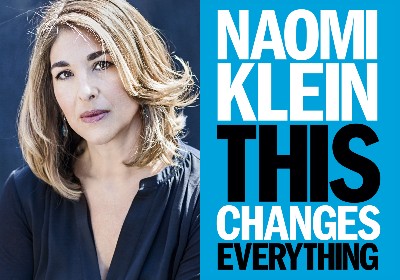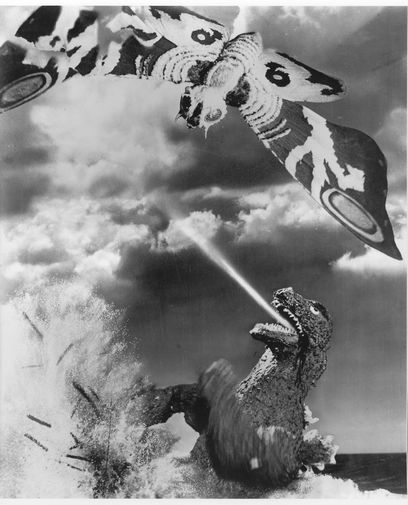by Michael Dhar
“If you don’t like what is being said, change the conversation.”
That’s Don Draper, “Mad Men’s” nihilistic ad genius, revealing at least part of his method. (A distillation that would reappear, slightly paraphrased, in the words of his protege, Peggy Olson, several seasons later.) In the series, when most everyone else obsesses over the details — stymied in trying to change behavior via argument — Don and Peggy just sweep the arguments aside. Instead, they talk about something simpler and more elemental. They reach the public by ignoring the facts, and simply telling a better story — “better” in the sense that it accesses a more powerful psychological pressure-point. A simpler one.
Don infamously employed that method during the series pilot, when he tackled the problem of cigarette advertising in an era of health warnings, proposing the simple line, “It’s toasted.” All the cigarette companies battling against the dampening influence of health warnings with their own counterarguments get nowhere. Mentioning the warnings only makes customers think of the warnings, Don says. So he changes the conversation. “It’s toasted.” Talk about something else — a warm emotion, conjuring agrarian, wholesome imagery. And the story changes.
That seems to be Naomi Klein’s approach with her new documentary, “This Changes Everything,” which premiered Tuesday. Klein and director Avi Lewis appeared at the screening at Music Box Theatre in Chicago, which I attended (the film is narrated by Klein and inspired by her book of the same title). Klein makes her narrative ambition pretty clear, repeating at various points in the film that she’s not interested in the usual ways of talking about the environment. In the opening, Klein says she cares little for what she considers the familiar narratives of saving the polar bears from intractable human nature. Instead, she wants to unravel the narrative imposed, she says, by scientists 400 years ago: the narrative of human domination over nature.
Not to get too tangled up here, but Klein’s really talking about changing two stories: She wants to change the narrative under which modern society lives (no small ambition). And she wants to change the story that climate activists tell themselves about what they’re doing. No longer should eco-warriors see themselves as educators about parts-per-million and the harm basic human nature does to charming mega-fauna. Rather, environmentalists should view themselves as storytellers, undoing the damage of a particularly caustic narrative humans have been telling themselves for centuries.
Klein’s not the first to suggest climate communication is broken. It’s been clear for a while now that facts haven’t worked in climate change efforts, as psychologist Adam Corner wrote in 2013:
“The scientific and economic cases were made [in 2008]. Surely with all those facts on the table, soaring public interest and ambitious political action were inevitable?
The exact opposite happened. Fast-forward to today, the eve of the IPCC’s latest report on the state of climate science, and it is clear that public concern and political enthusiasm have not kept up with the science. Apathy, lack of interest and even outright denial are more widespread than they were in 2008.”
It should be fairly obvious, even without Corner’s (and many others’) analyses, that the fact-based approach hasn’t worked. The percentages and modeling and “red lines” of climate science have been clear for decades; all that changes is the percent-certainty about risk predictions (inching ever closer to 100). But, as Corner wrote, scant progress has been made in either legislation or public opinion (though that does seem to have improved lately).
Corner advises climate workers to focus on ideas that resonate with people. Klein’s solution on that front is to frame climate change as the end-result of a mistaken narrative. She ties that overall story to a method of action, too: one that should be familiar to anyone who’s followed Klein’s work. The film spends most of its time portraying the mass-protest actions of usually poor groups opposing fossil fuel industries: villagers in India fighting a coal mine, First Nation peoples suing over a tar sands plant in Canada, and etc. Eventually, it comes out that Klein is really talking, again, about her familiar old object of critique: capitalism. Though she roots the story of human domination in Royal Society-era science, the villains of Klein’s film are industrial capitalists. The people hell-bent on dominating nature today may be telling the same story as some old scientists, but they’re doing it because of a rapacious capitalist system.
Klein seems to want to turn the climate change movement into Occupy Wall Street for trees — “Occupy the Planet,” maybe. In doing so, she says, she wants to inspire more hope for change than the standard environmental narratives do. The passion and the occasional success of the mass protests the film portrays, when combined with the right uplifting music, may certainly inspire some hope in the activists whom I suspect are Klein’s intended audience. She must know this movie won’t change the minds of climate change deniers or even provoke political moderates to action. Anti-capitalist agitation is unlikely to do that. But the activists and potential activists who’ve given up hope? Maybe she can convince them their actions can accomplish something.
That’s a worthy aim. I have to say, though, as I listened to Klein say how she found the standard environmental messages uninspiring, and then link her own message to anti-capitalist sentiment, I felt a bit of hope drain away. Good news! Klein says. We don’t have to change intractable human nature!
We just have to overhaul the dominant global economic system.
Once we do that, we can save the climate from destroying our species.
So, it’s all no big deal, really. Part of the conflict in Klein’s presentation arises because she’s really saying two things regarding climate change and capitalism. On the one hand, there is the deep, revolutionary implication of blaming capitalism for the end of the world: The global system must be overthrown if we are to save ourselves. On the other hand, the film points to investments in clean energy and protests of individual coal mines as the way forward. Germany has invested in solar energy because the people demanded it. That’s cool and all, but it is a mere nibbling at the edges of the capitalist system. If Klein truly believes that humanity’s narrative error is enacted via capitalism, if capitalism is guilty to its core, then investing in businesses that manufacture solar panels seems like a rather weak response.
I think, though, that even as she is talking primarily to activists — to help them better reach everyone else — Klein also has at least two types of activist in mind: the revolutionaries who agree with her that capitalism must go. And those who want to save the world without tackling the gargantuan task of remaking it. She just wants to give, to everyone who wants to help, something to do.
As in everyday life, inaction frequently leads to despair. Often, you just need to get up and do something, anything. If you don’t like how you’re feeling, change what you’re doing. Klein’s pep talk of a film may amount to the advice: “Just get out and walk around the block once. See how you feel.”

